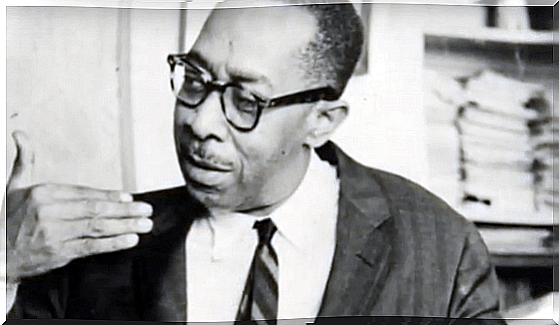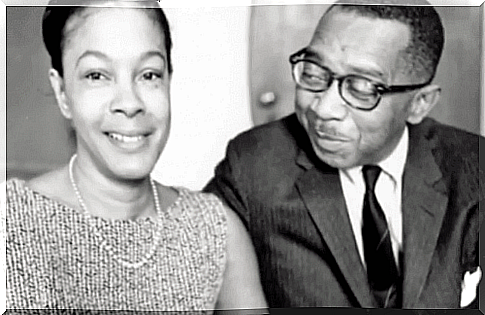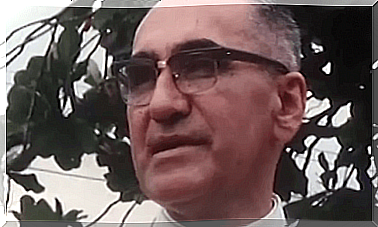Kenneth Clark, Or The Psychologist Who Fought Against Racial Segregation

In 1950 Kenneth Clark published a report on his research into racial discrimination suffered by children in schools in the United States. This document served to reveal the psychological effects of racial segregation supported by Jim Crow’s laws and also promoted its abolition in 1954.
Clark brought a lot to social psychology, experimental psychology, and society in general, with the help of his wife, Mamie Phipps Clark, who was also a psychologist. He is also recognized for his research on Afro-descendant culture and for having been the first African-American president of the American Psychology Association (APA). This man fought for radical changes in society.
His life
Clark was born near the Panama Canal in 1914 and died in 2005 in New York. He moved very early with his family to this American city and studied at Howard University. After that, he got his doctorate in psychology from Columbia University and majored in experimental psychology. He was also the first African-American full professor at City College in New York.
Kenneth Clark married North American social psychologist Mamie Phipps Clark. Both worked on the self-awareness of African American children in preschool. A little later, the couple moved to Harlem, where Clark received his doctorate in psychology from Columbia University.

His work
Kenneth Clark worked with Ralph Bunche, one of his professors who won a Nobel Peace Prize, on a study about social relations. Their findings, published in 1944 in the book An American Dilemma , have become required readings in many high schools and universities in the United States. Clark also founded the Northside Center for Childhood Development in 1946. His work began to show great promise.
A little later he wrote a report on the effects of racial segregation in children. The latter aroused the interest of Judge Robert Carter, who used it as a tool to achieve the abolition of Jim Crow’s laws before the Supreme Court of the United States.
Later, Kenneth Clark was a consultant to government and private organizations. He was also the first African-American member of the New York State Board of Regents. He founded Harlem Youth Opportunities Limited and Kenneth B. Clark & Associates, a race-related consultancy firm.
The work of Kenneth Clark
In Kenneth Clark’s work, it is difficult to tell the difference between personal and professional life. He spent his time and devoted his efforts and knowledge to the struggle for change and improvement of the living conditions of the African American community in the United States.
He has written numerous books and articles on the condition of African Americans as a result of segregation. His most important works have been Prejudice and Your Child, A Possible Reality, and Challenge of Power. He then became a full professor at City College in New York, where he taught psychology. At the same time, and alongside his wife Mamie Phipps, he volunteered at the Northside Child Development Center, treating children with personality disorders.

An example of struggle and surpassing oneself
Although the verdict of the Supreme Court of the United States assumed a radical change in the level of racial segregation, the real changes took a long time to emerge and prejudices continued to exist. Kenneth Clark has become a leading academic activist. He was the head of education commissions that sought to ensure the inclusion of African American children in schools.
When the right knowledge is combined with the right causes, anyone can move mountains and bring down walls that seem impassable. Clark never gave up until his death in 2005. He was a true example of the importance of social psychology in our daily lives.










